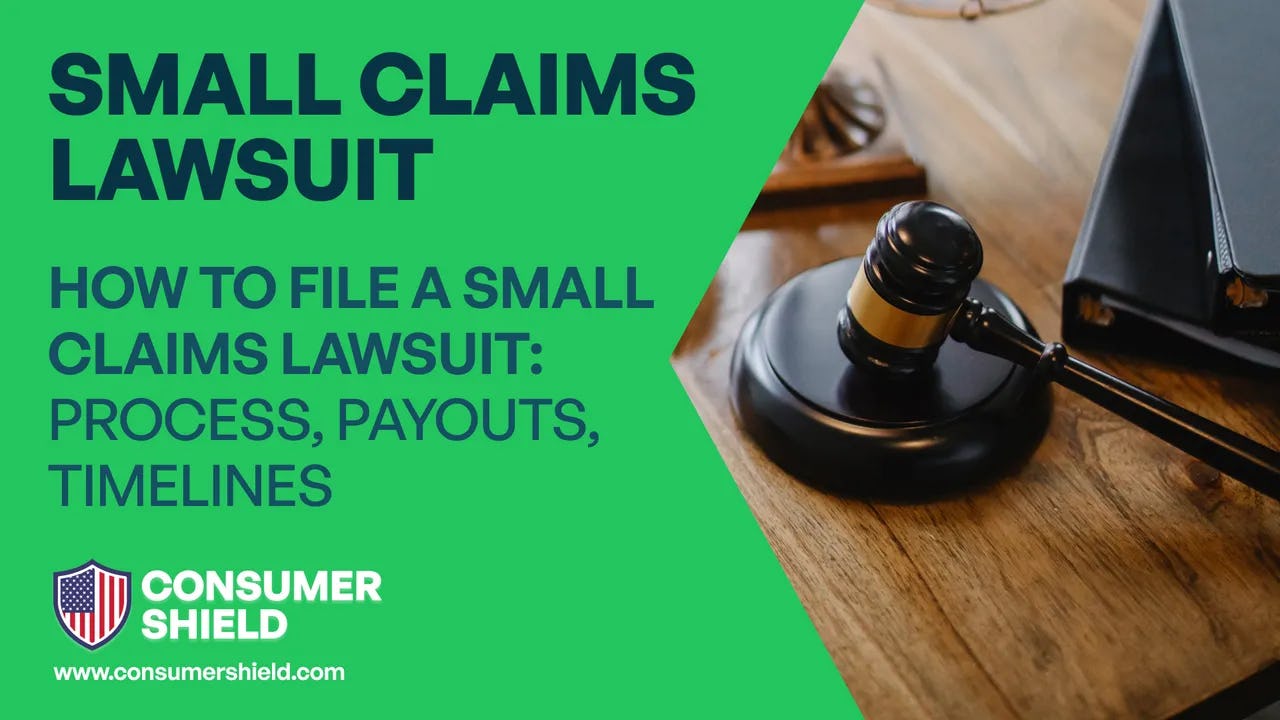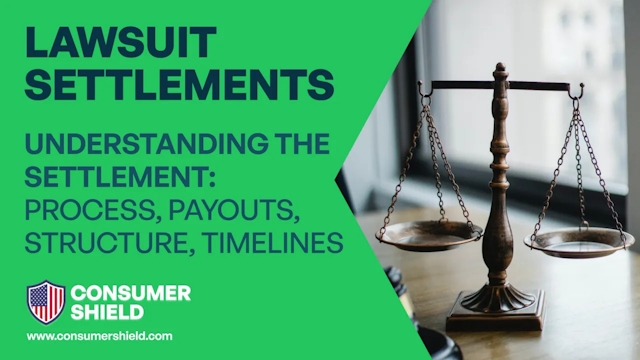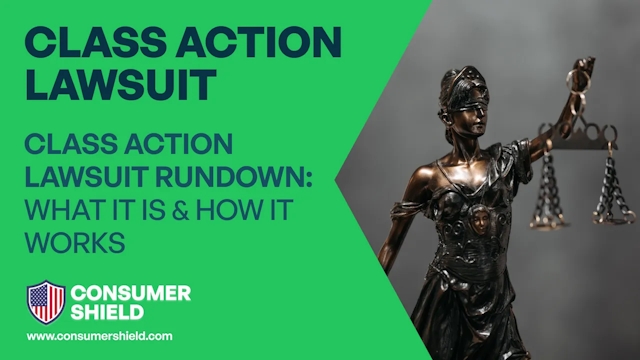Introduction to Small Claims Court in the U.S.
Small claims court is an essential component of the U.S. legal system, designed specifically for the general public to settle disputes involving relatively modest amounts of money.
Unlike the more formal and complex higher courts, small claims courts provide a streamlined, accessible, and cost-effective avenue for individuals to pursue justice without the need for extensive legal knowledge or representation.
Note that ConsumerShield can help you determine your eligibility for compensation in any lawsuit after you file for a free claim review.
The Role and Purpose of Small Claims Court
Small claims courts are created to handle minor legal disputes quickly and inexpensively. They are an indispensable tool for individuals seeking to resolve common financial disputes such as unpaid bills, minor personal injury claims, property damage, and breach of contract cases.
Key Features of Small Claims Court
- Simplified Legal Procedures: The procedures are designed to be straightforward and easy for non-lawyers to navigate.
- Expedited Process: Cases in small claims court are usually resolved much faster than in higher courts.
- Affordability: The costs associated with filing and pursuing a case in small claims court are relatively low, making it a viable option for many.
Understanding Jurisdiction and Limits
Each state has its own specific rules defining the jurisdiction of its small claims court, including the maximum amount for which one can sue. This limit is essential in determining whether your case is eligible for small claims court or if it should be filed in a higher court.
The Informal Nature of Small Claims Court
One of the most significant aspects of small claims court is its informal nature. This informality extends to the presentation of evidence, the proceedings themselves, and often, the flexibility in scheduling hearings. The goal is to provide a fair, efficient resolution without the stringent formalities of higher courts.
Real-World Examples
Consider a scenario where a landlord refuses to return a security deposit without a valid reason, or a small business owner faces non-payment for services rendered. These are typical examples of cases apt for small claims court. These courts empower individuals and small businesses to seek justice without the daunting prospect of a prolonged, expensive legal battle.
Accessibility and Community Impact
Small claims courts play a critical role in making the legal system accessible to the average person. By providing a platform where everyday disputes can be resolved with relative ease, these courts help maintain social harmony and uphold the principle of fairness in economic transactions.
In conclusion, the small claims court system in the U.S. is a crucial component of the justice system, offering an accessible, efficient, and equitable forum for resolving minor disputes. This court system ensures that legal recourse is not just a privilege of the affluent or the legally knowledgeable but a right accessible to all.
How to Take Someone to Small Claims Court
Taking someone to small claims court might seem daunting, but it's a straightforward process designed to be accessible to everyone, regardless of their legal expertise. Here's a step-by-step guide to help you navigate this journey:
1. Determine If Your Case Belongs in Small Claims Court
First, assess whether your dispute is appropriate for small claims court. This involves considering the nature of your issue and the amount of money involved. Small claims court is ideal for cases where the dispute involves a relatively small monetary amount, typically up to $10,000, but this limit varies by state.
Example Cases Suitable for Small Claims Court:
- Unpaid rent or security deposits.
- Minor property damage cases.
- Small business disputes over contracts or unpaid invoices.
2. Understand the Statute of Limitations
Each type of claim has a "statute of limitations," which is the deadline by which you must file your lawsuit. This varies depending on the nature of the dispute, so it’s crucial to file your claim before this period expires.
3. Gather Documentation and Evidence
Prepare all relevant documents and evidence related to your case. This might include contracts, receipts, photos of damages, email correspondence, or witness statements. The more organized and thorough your evidence, the stronger your case.
4. Identify the Correct Party to Sue
Ensure you are suing the right person or entity. This means identifying the legal name of the individual or the official business name of a company. Incorrectly identifying a defendant can lead to delays or a dismissal of your case.
5. Find the Right Venue
File your lawsuit in the correct jurisdiction. Generally, you should file in the county where the defendant lives or where the dispute occurred. Filing in the wrong jurisdiction can result in your case being dismissed.
6. Complete and File the Complaint Form
Obtain the necessary forms from your local small claims court, which are often available online. Fill out the complaint form, providing a clear and concise description of your dispute and the amount of money you are seeking.
7. Pay the Filing Fee
There is a fee to file a case, which varies by state and the amount of money at stake. If you cannot afford the fee, you can request a fee waiver.
8. Serve the Defendant
After filing your claim, you must legally notify the defendant about the lawsuit. This process is called "serving" the defendant. The court can advise you on how to do this properly, as rules vary by state.
9. Prepare for Your Court Date
Once the defendant has been served, the court will set a hearing date. Prepare your case by organizing your evidence, planning what you will say, and, if possible, consulting with a legal advisor.
10. Consider Settlement Options
Before the court date, consider whether settling the dispute outside of court is possible. Sometimes, a defendant may be willing to resolve the issue once the seriousness of the legal action is understood.
In summary, taking someone to small claims court is a process that requires careful preparation and adherence to legal procedures. By following these steps, you can confidently present your case and seek the justice you deserve. Remember, small claims court is designed to be user-friendly, empowering you to stand up for your rights without the need for extensive legal knowledge.
Understanding the Costs Involved
Filing a lawsuit in small claims court involves certain costs that you need to be aware of before proceeding. These costs vary depending on the state and the specifics of your case but generally include filing fees, service fees, and potential additional expenses. Let's break down these costs to give you a clearer understanding:
Filing Fees
The filing fee is the cost to file your lawsuit in small claims court. This fee varies from state to state and sometimes depends on the amount of money you are suing for. Generally, the fees range from $30 to $300. It's crucial to check the specific fees for your jurisdiction before filing.
Examples of Filing Fees by Claim Amount:
- For claims up to $2,500: $30 - $100
- For claims between $2,500 and $7,500: $100 - $200
- For claims over $7,500: $200 - $300
Remember, these are general ranges, and the exact fees will depend on your state's regulations.
Service Fees
After filing your lawsuit, you must notify the defendant about the case through a process called "serving." This can incur a service fee, especially if you use a professional process server or sheriff's department to serve the papers. The cost for service of process can range from $20 to $100.
Additional Costs
- Postage and Copying: If you’re handling the serving process yourself, you'll need to account for postage costs if mailing the documents, and copying fees for making necessary copies of your filing documents.
- Court Costs for Judgment Enforcement: If you win your case, there might be additional costs to collect the judgment, especially if the defendant doesn't voluntarily pay.
- Travel and Time Off Work: Don’t forget to consider the cost of traveling to court and any potential loss of income if you need to take time off work.
Fee Waivers
If you cannot afford the filing and service fees, you can apply for a fee waiver. The court will require you to provide proof of your income or financial hardship.
Small Claims Court Minimum and Maximum Amount Limits
Each state sets its own monetary limits for small claims court cases. Typically, these limits range from $2,500 to $25,000. It’s important to check the limit in your state to ensure your claim falls within the small claims court's jurisdiction.
Why Understanding Costs is Important
Knowing the costs involved in small claims court is crucial for several reasons:
- It helps you make an informed decision about whether pursuing a claim is financially feasible.
- You can prepare financially for the expenses that come with filing and pursuing a lawsuit.
- Understanding the full extent of potential costs can also guide your decisions on settling a dispute outside of court.
In summary, while small claims court offers a more affordable route for legal disputes, it's important to be fully aware of all the associated costs to plan accordingly. By doing so, you can make informed decisions and avoid any unexpected financial burdens as you seek justice through the court system.






